Accommodation · Africa · Asia · Australia · Camping · Central America · Costa Rica · Fiji · Hotels · Oceania · Regions · Resorts · South Africa · Thailand
Earth’s top 5 eco-luxury places to stay
Further to my last post about travelling sustainably when we can travel again, this post highlights my Top 5 favourite accommodation providers that take sustainability seriously, both in their design and construction, and their daily practices.
Kasiiya Tented Camp, Costa Rica
The latest eco-luxe camp in the Americas, the forest and wildlife have top priority here. The Kasiiya Tented Camp property opened last year and was created with near-zero impact on the environment. Each of the five stunning tents is environmentally sustainable, based on timber platforms and exclusively built from natural materials, while the surrounding flora has been retained to leave minimal disturbance on this incredible landscape in Papagayo.
 The camp can be booked on an exclusive basis.
Emirates One & Only Wolgan Valley, Australia
One & Only is committed to sustainability and aims to return the surrounding landscape and environment back to what it was prior to European settlement in the early 1800s. Emirates One & Only Wolgan Valley is carbon neutral, recycles extensively, minimises waste, has halved energy consumption since opening, and sources local, organic produce for your dining delight.
The camp can be booked on an exclusive basis.
Emirates One & Only Wolgan Valley, Australia
One & Only is committed to sustainability and aims to return the surrounding landscape and environment back to what it was prior to European settlement in the early 1800s. Emirates One & Only Wolgan Valley is carbon neutral, recycles extensively, minimises waste, has halved energy consumption since opening, and sources local, organic produce for your dining delight.
 Six Senses, Fiji
A brand new resort, Six Senses Fiji has developed sustainability programs that include conserving energy and rainwater for the long term. They make their own delicious drinking water in a reverse osmosis plant.
Six Senses, Fiji
A brand new resort, Six Senses Fiji has developed sustainability programs that include conserving energy and rainwater for the long term. They make their own delicious drinking water in a reverse osmosis plant.
 They grow produce organically and their septic tanks are worm-based. They also have one of the largest off-grid solar installations using Tesla battery packs in the Southern Hemisphere. Energy from the sun is used to power the resort and any excess power is used for the desalination plant.
The resort is also home to 17 Fijian crested iguanas, a critically endangered species with less than 5,000 remaining in the world. A recent visit from iguana specialists provided positive insights regarding the species and, with the sighting of two babies, demonstrated that they are successfully reproducing in their protected habitat within the resort.
The resort offers apprenticeships and development programs to high potential Fijians with the goal to develop local talent. The resort is working with a number of cottage industries in order to support the local economy.
The resort also collaborates with Rise Beyond the Reef. This NGO works with women in remote communities teaching them to create marketable goods using traditional skills. These goods are used in the villas and restaurants and are for sale in the resort boutique. The profit from these products goes into alleviating poverty in the communities.
Sabi Sabi Earth and Bush Lodges, South Africa
Environmentally-friendly construction materials are used in the building and upgrade of Sabi Sabi Earth and Bush Lodges. These incredible lodges in South Africa’s Sabi Sands are arguably the finest game viewing reserve in the world.
They grow produce organically and their septic tanks are worm-based. They also have one of the largest off-grid solar installations using Tesla battery packs in the Southern Hemisphere. Energy from the sun is used to power the resort and any excess power is used for the desalination plant.
The resort is also home to 17 Fijian crested iguanas, a critically endangered species with less than 5,000 remaining in the world. A recent visit from iguana specialists provided positive insights regarding the species and, with the sighting of two babies, demonstrated that they are successfully reproducing in their protected habitat within the resort.
The resort offers apprenticeships and development programs to high potential Fijians with the goal to develop local talent. The resort is working with a number of cottage industries in order to support the local economy.
The resort also collaborates with Rise Beyond the Reef. This NGO works with women in remote communities teaching them to create marketable goods using traditional skills. These goods are used in the villas and restaurants and are for sale in the resort boutique. The profit from these products goes into alleviating poverty in the communities.
Sabi Sabi Earth and Bush Lodges, South Africa
Environmentally-friendly construction materials are used in the building and upgrade of Sabi Sabi Earth and Bush Lodges. These incredible lodges in South Africa’s Sabi Sands are arguably the finest game viewing reserve in the world.
 Reverse osmosis was evaluated by Sabi Sabi, but as this would entail wasting 8 litres for every 1 litre produced, in the current climate this was a system they decided would not be responsible in the management of natural water resources in any wilderness environment. So whilst bottled water is still used at Sabi Sabi, the bottles are 100% recyclable and unfinished bottles are used for laundry or watering plants.
All plastic bottles and lids used at Sabi Sabi are used to create employment opportunities and play an educational role against littering and are donated to a local empowerment group of ladies who recycle the lids and bottles.
A greywater system at Bush Lodge recycles water from baths, basins and showers is used to irrigate the lodges, saving on precious underground resources. All wastewater is pumped into a series of gravitational dams and a natural filtration process takes place ensuring a pure water deposit back into the underground river systems.
Soneva Kiri, Thailand
Soneva Kiri is my all time favourite resort for families. And the fact that it is sustainable luxury is the icing on the cake. Soneva banned the use of plastic straws at its resorts as far back as 1998. The resort filters, mineralises and bottles its own Soneva Drinking Water in reusable glass bottles, averting the production of 1,500,000 plastic bottles. Soneva raises around USD 90,000 every year from the Soneva Drinking Water proceeds and has funded over 500 clean water projects in more than 50 countries.
Reverse osmosis was evaluated by Sabi Sabi, but as this would entail wasting 8 litres for every 1 litre produced, in the current climate this was a system they decided would not be responsible in the management of natural water resources in any wilderness environment. So whilst bottled water is still used at Sabi Sabi, the bottles are 100% recyclable and unfinished bottles are used for laundry or watering plants.
All plastic bottles and lids used at Sabi Sabi are used to create employment opportunities and play an educational role against littering and are donated to a local empowerment group of ladies who recycle the lids and bottles.
A greywater system at Bush Lodge recycles water from baths, basins and showers is used to irrigate the lodges, saving on precious underground resources. All wastewater is pumped into a series of gravitational dams and a natural filtration process takes place ensuring a pure water deposit back into the underground river systems.
Soneva Kiri, Thailand
Soneva Kiri is my all time favourite resort for families. And the fact that it is sustainable luxury is the icing on the cake. Soneva banned the use of plastic straws at its resorts as far back as 1998. The resort filters, mineralises and bottles its own Soneva Drinking Water in reusable glass bottles, averting the production of 1,500,000 plastic bottles. Soneva raises around USD 90,000 every year from the Soneva Drinking Water proceeds and has funded over 500 clean water projects in more than 50 countries.
 Other initiatives include using sustainable materials, recycling waste, and preserving and protecting the local ecosystem.
Christopher Hill is Founder and CEO at Hands Up Holidays. Hands Up Holidays is an award-winning travel company specialising in tailor-made luxury family trips that combine sightseeing with hands-on service projects.
If you would like to be a guest blogger on A Luxury Travel Blog in order to raise your profile, please contact us.
Other initiatives include using sustainable materials, recycling waste, and preserving and protecting the local ecosystem.
Christopher Hill is Founder and CEO at Hands Up Holidays. Hands Up Holidays is an award-winning travel company specialising in tailor-made luxury family trips that combine sightseeing with hands-on service projects.
If you would like to be a guest blogger on A Luxury Travel Blog in order to raise your profile, please contact us.
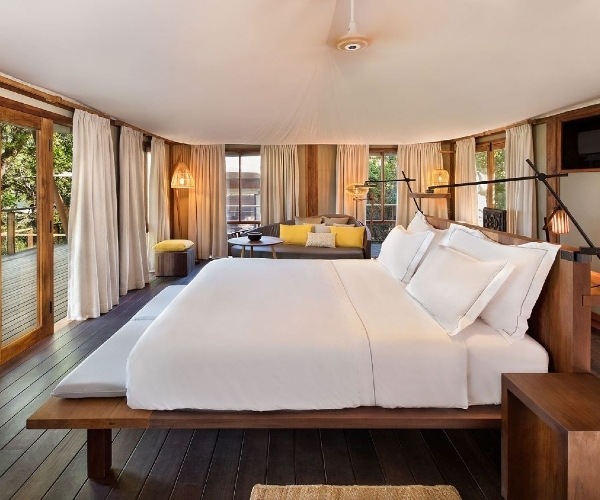 The camp can be booked on an exclusive basis.
Emirates One & Only Wolgan Valley, Australia
One & Only is committed to sustainability and aims to return the surrounding landscape and environment back to what it was prior to European settlement in the early 1800s. Emirates One & Only Wolgan Valley is carbon neutral, recycles extensively, minimises waste, has halved energy consumption since opening, and sources local, organic produce for your dining delight.
The camp can be booked on an exclusive basis.
Emirates One & Only Wolgan Valley, Australia
One & Only is committed to sustainability and aims to return the surrounding landscape and environment back to what it was prior to European settlement in the early 1800s. Emirates One & Only Wolgan Valley is carbon neutral, recycles extensively, minimises waste, has halved energy consumption since opening, and sources local, organic produce for your dining delight.
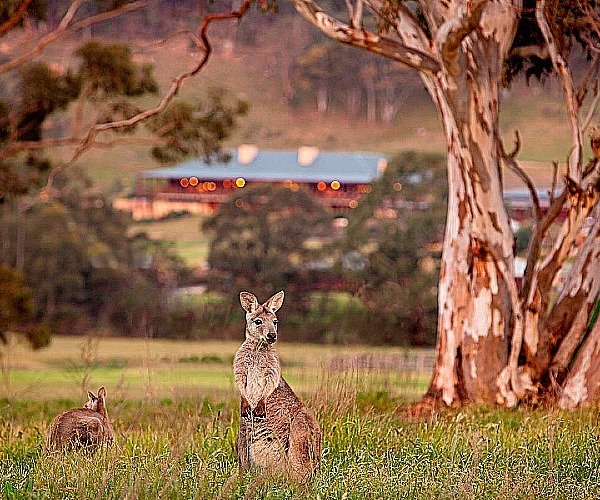 Six Senses, Fiji
A brand new resort, Six Senses Fiji has developed sustainability programs that include conserving energy and rainwater for the long term. They make their own delicious drinking water in a reverse osmosis plant.
Six Senses, Fiji
A brand new resort, Six Senses Fiji has developed sustainability programs that include conserving energy and rainwater for the long term. They make their own delicious drinking water in a reverse osmosis plant.
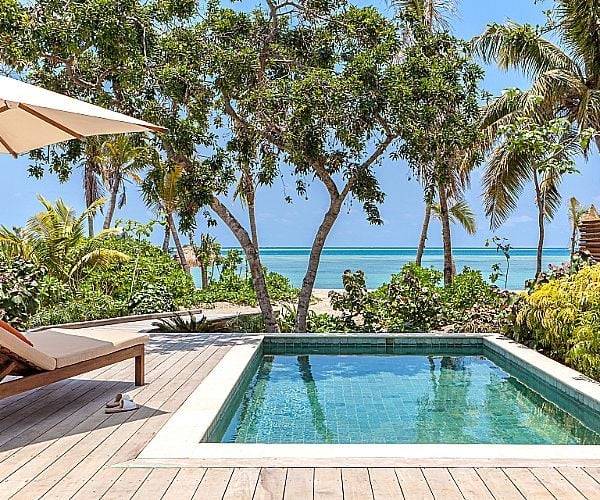 They grow produce organically and their septic tanks are worm-based. They also have one of the largest off-grid solar installations using Tesla battery packs in the Southern Hemisphere. Energy from the sun is used to power the resort and any excess power is used for the desalination plant.
The resort is also home to 17 Fijian crested iguanas, a critically endangered species with less than 5,000 remaining in the world. A recent visit from iguana specialists provided positive insights regarding the species and, with the sighting of two babies, demonstrated that they are successfully reproducing in their protected habitat within the resort.
The resort offers apprenticeships and development programs to high potential Fijians with the goal to develop local talent. The resort is working with a number of cottage industries in order to support the local economy.
The resort also collaborates with Rise Beyond the Reef. This NGO works with women in remote communities teaching them to create marketable goods using traditional skills. These goods are used in the villas and restaurants and are for sale in the resort boutique. The profit from these products goes into alleviating poverty in the communities.
Sabi Sabi Earth and Bush Lodges, South Africa
Environmentally-friendly construction materials are used in the building and upgrade of Sabi Sabi Earth and Bush Lodges. These incredible lodges in South Africa’s Sabi Sands are arguably the finest game viewing reserve in the world.
They grow produce organically and their septic tanks are worm-based. They also have one of the largest off-grid solar installations using Tesla battery packs in the Southern Hemisphere. Energy from the sun is used to power the resort and any excess power is used for the desalination plant.
The resort is also home to 17 Fijian crested iguanas, a critically endangered species with less than 5,000 remaining in the world. A recent visit from iguana specialists provided positive insights regarding the species and, with the sighting of two babies, demonstrated that they are successfully reproducing in their protected habitat within the resort.
The resort offers apprenticeships and development programs to high potential Fijians with the goal to develop local talent. The resort is working with a number of cottage industries in order to support the local economy.
The resort also collaborates with Rise Beyond the Reef. This NGO works with women in remote communities teaching them to create marketable goods using traditional skills. These goods are used in the villas and restaurants and are for sale in the resort boutique. The profit from these products goes into alleviating poverty in the communities.
Sabi Sabi Earth and Bush Lodges, South Africa
Environmentally-friendly construction materials are used in the building and upgrade of Sabi Sabi Earth and Bush Lodges. These incredible lodges in South Africa’s Sabi Sands are arguably the finest game viewing reserve in the world.
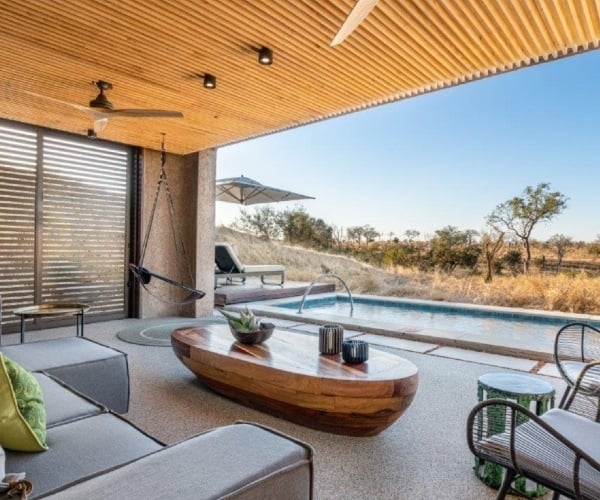 Reverse osmosis was evaluated by Sabi Sabi, but as this would entail wasting 8 litres for every 1 litre produced, in the current climate this was a system they decided would not be responsible in the management of natural water resources in any wilderness environment. So whilst bottled water is still used at Sabi Sabi, the bottles are 100% recyclable and unfinished bottles are used for laundry or watering plants.
All plastic bottles and lids used at Sabi Sabi are used to create employment opportunities and play an educational role against littering and are donated to a local empowerment group of ladies who recycle the lids and bottles.
A greywater system at Bush Lodge recycles water from baths, basins and showers is used to irrigate the lodges, saving on precious underground resources. All wastewater is pumped into a series of gravitational dams and a natural filtration process takes place ensuring a pure water deposit back into the underground river systems.
Soneva Kiri, Thailand
Soneva Kiri is my all time favourite resort for families. And the fact that it is sustainable luxury is the icing on the cake. Soneva banned the use of plastic straws at its resorts as far back as 1998. The resort filters, mineralises and bottles its own Soneva Drinking Water in reusable glass bottles, averting the production of 1,500,000 plastic bottles. Soneva raises around USD 90,000 every year from the Soneva Drinking Water proceeds and has funded over 500 clean water projects in more than 50 countries.
Reverse osmosis was evaluated by Sabi Sabi, but as this would entail wasting 8 litres for every 1 litre produced, in the current climate this was a system they decided would not be responsible in the management of natural water resources in any wilderness environment. So whilst bottled water is still used at Sabi Sabi, the bottles are 100% recyclable and unfinished bottles are used for laundry or watering plants.
All plastic bottles and lids used at Sabi Sabi are used to create employment opportunities and play an educational role against littering and are donated to a local empowerment group of ladies who recycle the lids and bottles.
A greywater system at Bush Lodge recycles water from baths, basins and showers is used to irrigate the lodges, saving on precious underground resources. All wastewater is pumped into a series of gravitational dams and a natural filtration process takes place ensuring a pure water deposit back into the underground river systems.
Soneva Kiri, Thailand
Soneva Kiri is my all time favourite resort for families. And the fact that it is sustainable luxury is the icing on the cake. Soneva banned the use of plastic straws at its resorts as far back as 1998. The resort filters, mineralises and bottles its own Soneva Drinking Water in reusable glass bottles, averting the production of 1,500,000 plastic bottles. Soneva raises around USD 90,000 every year from the Soneva Drinking Water proceeds and has funded over 500 clean water projects in more than 50 countries.
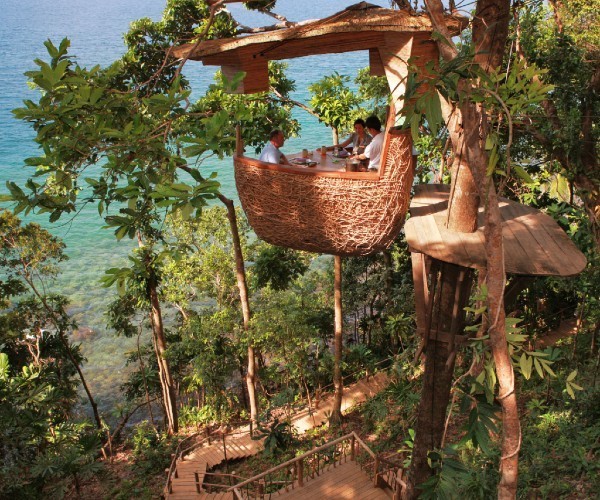 Other initiatives include using sustainable materials, recycling waste, and preserving and protecting the local ecosystem.
Christopher Hill is Founder and CEO at Hands Up Holidays. Hands Up Holidays is an award-winning travel company specialising in tailor-made luxury family trips that combine sightseeing with hands-on service projects.
If you would like to be a guest blogger on A Luxury Travel Blog in order to raise your profile, please contact us.
Other initiatives include using sustainable materials, recycling waste, and preserving and protecting the local ecosystem.
Christopher Hill is Founder and CEO at Hands Up Holidays. Hands Up Holidays is an award-winning travel company specialising in tailor-made luxury family trips that combine sightseeing with hands-on service projects.
If you would like to be a guest blogger on A Luxury Travel Blog in order to raise your profile, please contact us.Did you enjoy this article?
Receive similar content direct to your inbox.


Years ago we wouldn’t have even paid any attention to the eco friendly aspects of travel, let alone whether the accommodation had sustainable practices and credentials. So even though we’ve got a long way to go, I think we should still celebrate the achievements that have got us this far because travellers are far more conscious of eco issues these days. It’s great to see how different luxury places are putting the focus on sustainability. It’s one thing to say you’re environmentally friendly and another to actually list how and what you’re doing to be able to say that. I feel ignorant not knowing how the Six Senses resort makes their own water, don’t think I’ve heard of a reverse osmosis plant for that purpose before. I’ll have to investigate.
There are lots of amazing choices here. It does seem like the regions that are more natural, more focus on being in the great outdoors rather than surrounded by a concrete jungle, have more of a focus on sustainability. I wonder what country has the most eco resorts?
Thanks Kelly,
Costa Rica has the most Eco resorts: they have really embraced sustainability; there is a comprehensive government rating and scoring system for how sustainable each hotel is.
There are so many incredible eco-luxury properties there!
It’s helpful to see exactly what these places are doing to class themselves as ‘eco’. Even the relatively simple and straightforward things can make a big difference, like that one in Thailand, Soneva Kiri, just using the reusable glass bottles. Over 1,500,000 plastic bottles saved from use, and then money raised going to projects in different countries. That’s before you even get to the property specific initiatives like wastewater systems and irrigation, being carbon neutral, reducing energy consumption, the materials used in the property itself etc. I often wonder what places are really doing when they say how eco friendly they are, so it’s reassuring when you can see it all laid out like this. Well done to all the luxury accommodations here for their efforts.
That’s right Adam. Sadly there is a lot of green washing that takes place, and this means that those hotels that are genuinely sustainable get tarred with the same brush.
Take heart that there are some doing it well!
It’s good that these accommodations are not limited to eco-friendly design because the more important aspect is employing eco-friendly practices which impacts the environment on a daily basis. Even if hotels and resorts didn’t start out as eco-friendly, I believe they can still be helpful to the environment by starting today with simple things. It’s never too late. With the way things are now with the world, I think it’s just Mother Earth’s way of telling us to take care of the world and take care of ourselves. Slow down, pause, breathe. Something these luxurious places seem to want us to do as well. When I can finally go back to traveling, I’d like to go on a sojourn in these kinds of places.